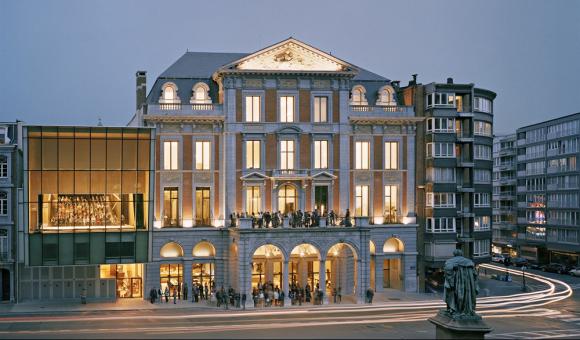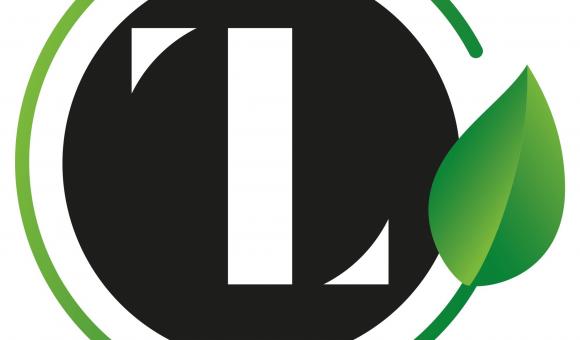
The global COVID-19 pandemic has been an enforced break for the cultural sector, and the performing arts sector in particular, and an opportunity to question the unprecedented crisis the world is going through. Natural resources are overexploited, the climate emergency is glaring, biodiversity is collapsing, waste production is exploding, pollutant emissions are worsening, social inequalities are intensifying, and our economic system is collapsing. The cultural sector also contributes to greenhouse gas emissions on its own scale, and therefore to climate change, as well as to the exploitation of natural resources. The sector is therefore exposed to physical risks which, if not anticipated, will make it vulnerable to systemic shocks.
Yet culture is essential, and is a right. It must therefore be considered a public service to be protected and supported in concert with cultural issues in the ecological transition. Faced with the magnitude of these challenges, the Théâtre de Liège has decided to turn them into opportunities and become a trailblazer in the sector's much needed transition.
These deliberations involve scientists who mainly work at ULiège, artists who are aware of these issues, and staff members involved in the GreenTeam coordinated by the Theatre's eco-advisor. However, this kind of transition must be for and with the public. The "Towards a sustainable and desirable future, for all" project is based on four areas of work.
The accessibility of the Theatre to our audiences is the keystone of this ambitious project. The many reflections around this accessibility are remarkable for their inclusive, transversal and innovative nature.
The COVID-19 crisis has accelerated the digitalisation of our content (for example, the Corps de Texte 2021 festival and the play Muhammad in February 2021 which were streamed) and the creation of a Théâtre de Liège app.
"When we moved back to the city centre in 2013, into the renovated Emulation Building, our desire was to connect to the district, with a focus on our neighbours across the street, students, faculty, University staff, and its residents, across generations.
The choice to offer a broad spectrum of programming - theatre, dance, shows for young audiences - combining various aesthetics and forms, echoes our desire and the need to open up the Théâtre de Liège to as many people as possible, to ALL audiences.
By focusing our programming on multiculturalism, both on the stage and in the content of our artistic proposals, as well as on in the implementation of measures that take into account issues relating to "diversity" in the broadest sense - the ATLAS OF TRANSITIONS projects centred on our relationship with new migration, BERENICE on the fight against all forms of discrimination, etc. - we aim to optimise the way we welcome all citizens into the institution, regardless of their social and cultural origins. Serge Rangoni (Passeurs de culture brochure of the Théâtre de Liège and ULiège).
In increasing the number of glazed areas during the renovation, the architects wanted to invite citizens to look into the building before entering it. The doors to the Theatre and the University are charged with a strong symbolism that may lead some citizens to think that these institutions are "not for them". These imposing buildings exclude a part of the population, albeit unintentionally.
A large part of the work of the Theatre's teams is to break down this barrier by supporting groups of spectators to help them discover the venue during simple guided visits or by carrying out work before and after the performances. Whether with classes or groups from various associations, through theatre workshops on a variety of themes, these projects allow participants to discover from the inside the Theatre, this venue for encounters and performances where critical thinking takes place.
Despite this, the Theatre doors can still be too difficult to push open for some people, hence the desire to take art and culture into the very heart of the city (Picnic Urbain, Place aux Artistes festival, etc.).
Accessibility for PRM, promoting soft mobility (secure bicycle parking and shuttles for the public), as well as disseminating the Theatre's artistic offerings in rural areas, are the avenues currently being explored to further increase this accessibility (Sustainable Development Goals 1 "No poverty", 4 "Quality education", 10 "Reducing inequality" and 11 "Sustainable cities and towns".
The Theatre wants to provide a space for reflection and awareness-raising on issues related to sustainable development (Sabordage by Collectif Mensuel, the repeating of the "Sustainable Theatre?" project of Katie Mitchell in 2022 and Jérôme Bel in 2023). With the help of the Theatre's eco-advisor, the programming will focus on other artistic proposals in this area, both in their new eco-sustainable practices and in the themes addressed.
Particular attention is being paid to education and to citizens in the making. The Theatre's mediation and education service raises the awareness of children from all social classes on societal issues such as gender (Unique project - SDG 5: Gender equality). "I am really interested in these "culture-school" projects, how they work and the space for encounters, interactions and reflections that they offer. My research attempts to evaluate the impact of these theatre-workshops held in schools and actively involving students, teachers, the school institution and social partners, in order to address issues at the core of current events and the realities of these students, in this case migration in the "l'autre émoi" project. These are actions that "bring" culture/theatre into the schools, making them accessible to students from all social classes, who can feel closer to them and themselves become actors on stage." Fabienne Glowacz (Passeurs de culture brochure of the Théâtre de Liège and ULiège).
This ecological transition must also take place with the public. The Theatre wants to provide spaces for debate and discussion in order to think and build the world of tomorrow. The Théâtre de Liège is the founder of the "Sustainable Theatre Alliance", a network of theatres in transition at the international level which is engaging the performing arts sector in a transformation. In this context, the Théâtre de Liège will organise an International Forum of Theatres in Transition (FITT) in 2022, to place Wallonia at the heart of this emerging movement. International Forum of Theatres in Transition: Cultivating the Future From 7 to 12 November 2022, the FITT will bring together professionals in the performing arts and sustainable development - artists, scientists and citizens - to reflect on the major challenges of our time (ecological, social, digital and artistic).


